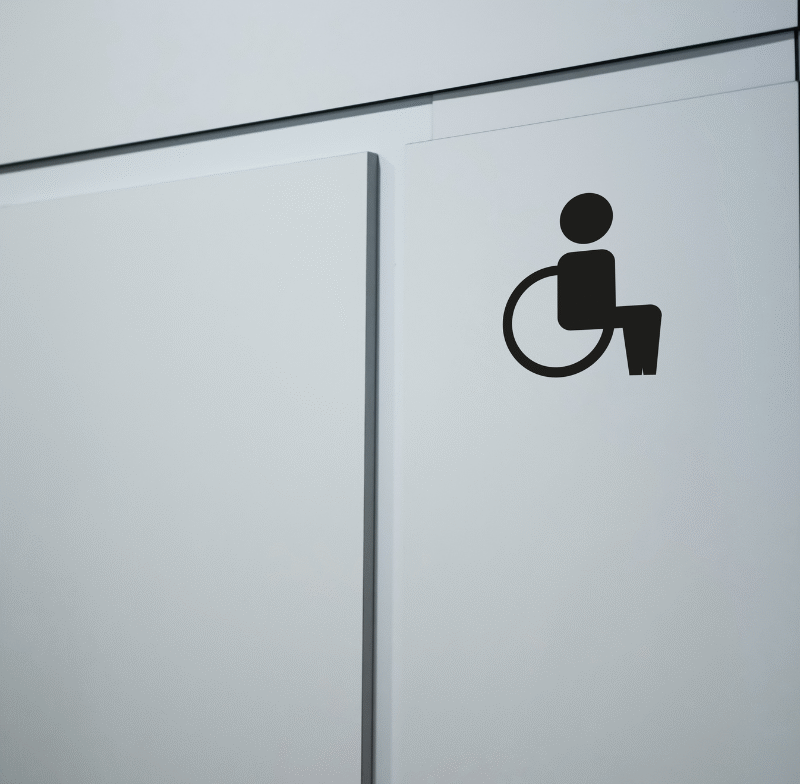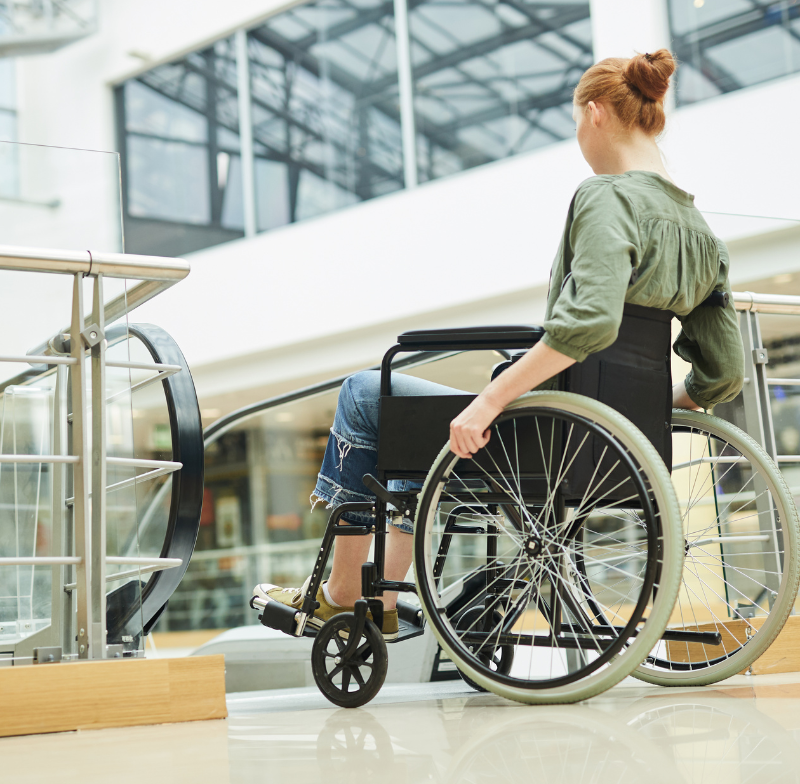Disability cards in the UK are essential tools for individuals who have physical, mental, or cognitive impairments. They help to enhance the lives of those with disabilities by providing recognition, access to various services, and accommodations that might otherwise be unavailable. Disability cards, particularly those for non-visible disabilities, play a crucial role in ensuring that individuals receive the support and understanding they need when navigating public spaces, transportation, or services. In this blog post, we will explore the different types of disability cards in the UK, including the National Disability Card, Fair4All Card, Disabled ID Card, and Access Card, and how they support those with both visible and non-visible disabilities.
What Are Disability Cards?
Disability cards are official identification cards that are issued to individuals who meet specific criteria for having a disability. They are used to help people gain access to services, discounts, and accommodations designed for those with physical, mental, or cognitive disabilities. These cards are typically used to indicate the individual’s disability status to service providers, government agencies, or businesses so that the person can receive the support or benefits they are entitled to.
Non-Visible Disabilities and Their Importance
A non-visible disability, also known as an invisible disability, refers to any condition that is not immediately apparent to others. These disabilities include, but are not limited to, mental health conditions like anxiety or depression, neurological disorders such as autism or epilepsy, chronic pain, and autoimmune diseases like multiple sclerosis. For individuals with non-visible disabilities, accessing support or being granted accommodations can be particularly challenging because their condition is not obvious to the public eye.
Disability cards are especially valuable for individuals with non-visible disabilities because they provide a clear, recognized way of communicating their needs without the need for detailed explanations or the potential for misunderstandings. These cards give individuals with non-visible disabilities a greater sense of security, knowing that their condition is acknowledged and understood by those around them, whether they are using public transportation, entering a venue, or seeking assistance.
Types of Disability Cards in the UK
There are several types of disability cards in the UK that are tailored to meet the needs of individuals with different disabilities. Below, we’ll cover some of the most common cards, including those for non-visible disabilities.
1. The National Disability Card
The National Disability Card is a well-recognized identification card that provides evidence of a disability. It is designed to offer various benefits and privileges to individuals with physical, mental, or sensory disabilities. The National Disability Card can be used to access discounts on public transport, parking, shopping, and entertainment venues. It is often used by individuals with visible disabilities, but it can also be used by those with non-visible disabilities, provided they meet the eligibility criteria.
The National Disability Card can help improve the quality of life for people by reducing financial burdens and enabling easier access to essential services. It is accepted by many public and private organizations across the UK, including local authorities, transport services, and major retailers. To apply for the National Disability Card, individuals typically need to provide proof of their disability status through medical documentation or official assessments.
2. The Fair4All Card
The Fair4All Card is another important disability card in the UK, specifically designed to support individuals with physical and non-visible disabilities by providing access to essential services and discounts. This card is especially useful for people who have conditions that may not be readily apparent to others, such as mental health conditions or chronic illnesses. The Fair4All Card is intended to increase equality by helping individuals with disabilities receive the same treatment and opportunities as others.
The Fair4All Card can be used in various settings, such as public transportation, parking, and for access to certain leisure and entertainment venues. It is widely accepted across the UK, and many organizations participate in the scheme to provide people with disabilities the resources and support they need. To apply for the Fair4All Card, individuals may need to provide medical documentation or a formal assessment from a healthcare professional confirming their disability.
3. Disabled ID Card
The Disabled ID Card is another form of identification for individuals with disabilities. Unlike other disability cards, which are often linked to public services or specific benefits, the Disabled ID Card is a more general-purpose card that serves as proof of disability. It is commonly used for accessing priority services or for gaining assistance in public spaces. This card is recognized by various public organizations, transport companies, and retail outlets.
For individuals with non-visible disabilities, the Disabled ID Card can be a valuable tool in communicating their need for support. Whether it’s requesting seating on public transportation or seeking assistance in a crowded space, the Disabled ID Card is an effective way to indicate one’s disability status. The application process for the Disabled ID Card varies depending on the issuing authority, but typically it requires proof of a qualifying disability.
4. Access Card
The Access Card is specifically designed for individuals with non-visible disabilities to help them communicate their needs in public places without the need for lengthy explanations. The card allows individuals to indicate to service providers, retailers, and other public services the type of assistance they may require. For example, someone with a non-visible disability may need extra time to complete a task, be allowed to use a priority seat, or require specific accommodations at a venue.
The Access Card is widely accepted across the UK and is supported by many public and private institutions, including theatres, shopping centres, and transport providers. It ensures that individuals with non-visible disabilities receive fair treatment and can access services without unnecessary barriers. To apply for an Access Card, applicants typically need to fill out a form detailing their disability and any accommodations they may require. They may also need to provide documentation from a healthcare provider confirming their condition.
How to Apply for Disability Cards
Applying for disability cards in the UK generally involves a straightforward process, though the requirements may differ depending on the card type. In most cases, applicants must demonstrate their disability status through medical documentation or formal assessments. This may include letters from doctors, specialists, or healthcare professionals. Depending on the card, applicants may also need to provide evidence of their eligibility, such as proof of benefits received or other official documentation.
Who Can Apply for Disability Cards?
Anyone who has a qualifying disability can apply for a disability card. This includes individuals with visible disabilities, such as those using wheelchairs or mobility aids, as well as those with non-visible disabilities, like autism, chronic pain, or mental health conditions. For non-visible disabilities, it may be necessary to provide supporting documentation from a healthcare provider, such as a doctor’s letter or a formal diagnosis.
The specific criteria for applying for each card may vary. Some cards are available to individuals who receive certain government benefits, while others may require an assessment of how the disability affects the individual’s ability to participate in everyday activities.
Where Are Disability Cards Accepted?
Disability cards are accepted in a wide range of settings across the UK. They can be used for accessing public transport, receiving discounts at leisure centres, theatres, and cinemas, or gaining priority access to services in public spaces. Additionally, many local authorities and private companies recognize disability cards for parking permits or for other accommodations, such as providing a designated seat on public transport.
While each disability card has different acceptance rules, they all provide individuals with greater access to services and support, ensuring that people with disabilities, including those with non-visible disabilities, can live more independently and enjoy equal opportunities.
Disability cards in the UK are vital tools that help individuals with visible and non-visible disabilities navigate daily life with greater ease. From access to transport and parking to receiving priority services in public places, these cards offer practical benefits that ensure equality and inclusion. Whether you are applying for a National Disability Card, Fair4All Card, Disabled ID Card, or Access Card, these cards are designed to improve the lives of those who need them most. They play a significant role in reducing stigma, offering recognition for non-visible disabilities, and providing essential support in public and private settings.
Featured Image by Paul Brennan from Pixabay
Discover more from The Blue Badge Blog
Subscribe to get the latest posts sent to your email.




Leave a Reply